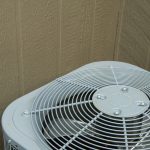
5 Reasons Your AC Unit is Leaking and What to Do
Noticed a leak in your air conditioning unit? No need to panic. Your unit may be leaking for several reasons, and though some causes may require a system replacement, others can be repaired or remedied.
Though it’s normal for more condensation to build up around your drain pipe during especially hot and humid months, if there’s an excessive amount of water surrounding your unit, one of these five common issues could be behind it.
1. The evaporator coil is frozen
If you’ve noticed a leak in your AC unit, one of the first places you should look to is your evaporator coil. You’ll know your evaporator coil is frozen if you open the blower door and see ice, which is melting and causing the water leak.
There are two likely reasons your unit’s evaporator coil is freezing, and both can be easily corrected. Dirty air filters are a common cause for evaporator coils to freeze because the excess dirt and grime prevent warm airflow access to the coils leading them to get too cold. Changing your air filter at least every three months will help prevent frozen coils and improve air circulation in your home.
Another way to keep your unit’s evaporator coils from freezing over is to ensure refrigerant remains at optimal levels. When refrigerant is low, the pressure in the unit will also lower, which can eventually cause the evaporator coil to freeze. If you begin to notice that your air conditioner isn’t cooling well or you hear a hissing or bubbling noise coming from your unit, schedule an inspection right away as there is likely a refrigerant leak and your unit may need to be replaced.
2. There’s a disconnected or rusted drain pan
If your unit is more than 10 to 12 years old, there is a possibility that your drain pan has rusted or is otherwise worn and damaged– causing water to fall right through. Replacing the pan is an easy solution to this problem.
3. The condenser pump is broken
A broken condenser pump may be to blame for your leak. Test your pump by pouring water in the unit’s condenser pan and see if it can adequately pump out the water. If not, and you’ve ensured the power is running, either the condenser or motor is malfunctioning. A technician will be able to help you determine which part is flawed and how best to correct the issue.
4. You have a clogged condensate drain line
One of the most common causes of an air conditioning unit leak is a clogged condensate drain line. Your condensate drain line is meant to remove excess water and humidity from the air, but when dust, pollen, mildew or other debris collect in the line, it becomes blocked and water builds.
While regularly changing your air filter will help keep debris from accumulating quickly, the only way to make sure your condensate line does not clog is to have it cleaned by a professional at least once a year. Having the pipe cleaned, and making sure that the overflow sensor (if you have one) is working properly, are the only ways to avoid problems associated with the line clogging and backing up.
5. Your unit was incorrectly installed
While there are other more common causes for a leaking unit, if your unit is brand new or has recently been replaced, the issue may be caused by an installation error. If your unit was installed on unlevel ground, too much pressure can build, causing a leak. Additionally, if your condensate trap was poorly designed, it can prevent drainage and eventually lead to water buildup and overflow.
While you may have a suspicion as to what is causing your unit to leak, it’s important that the problem is correctly identified before it’s too late. To ensure your leak is remedied appropriately, work with a licensed and experienced HVAC technician who will properly diagnose your issue and determine whether you’ll need to repair or replace your unit. If you’re experiencing a leak in your unit, call Barineau Heating and Air at (850) 580-4029 to schedule an inspection with one of our expert service technicians or book an appointment online.




